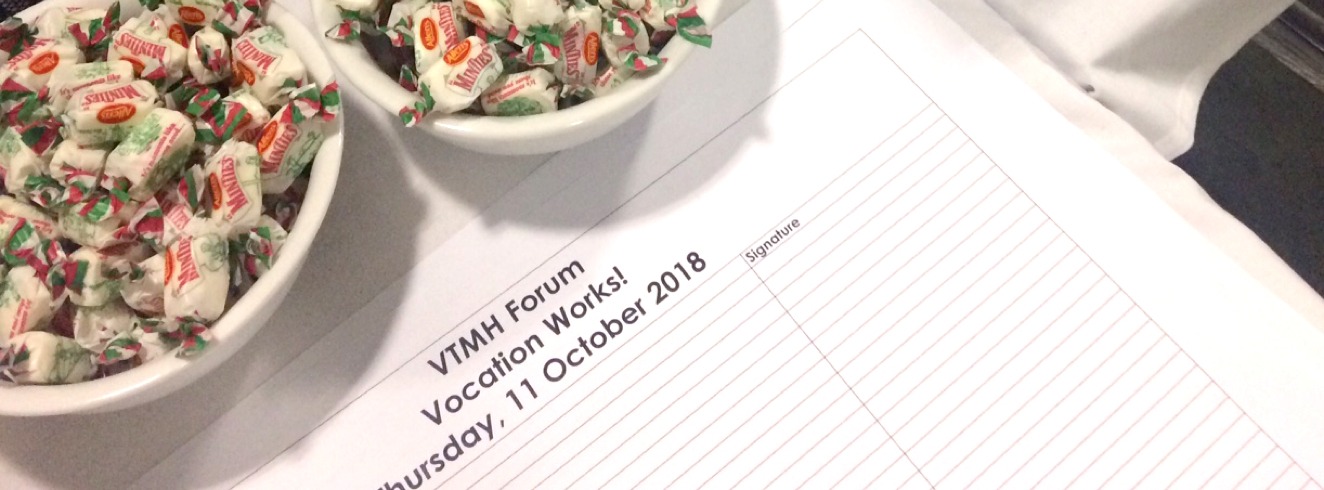
During mental health week, nearly 100 people came together to raise awareness and discuss the relationship between recovery and vocation and the importance of considering diversity in this context.
We heard from a broad range of perspectives and different voices on vocational rehabilitation. This included people with lived experience, migrants, advocates, practitioners and researchers from a range of organisations, agencies and services. Overall, there were 12 presentation sessions from 21 presenters from across 11 individual organisations within Victoria. The feedback from audience members and presenters was overwhelmingly positive. A selection of quotes and images are presented below:

“Finding out about organisations I was previously unaware of. Now have an increased resource base that I can refer to, to assist my clients.”
“…the lived experiences of people with more service-based traditional presentations really brought this forum to life…”
“Great mix up of perspectives and ideas…”
“Presenter’s spirit, speaking from their experiences and the open discussion.”
“I found it to be such an inspiring forum.”
“All the stories were so positive, energetic and so inspiring.”
“Finding out about organisations I was previously unaware of. Now have an increased resource base that I can refer to, to assist my clients.”
“…the lived experiences of people with more service-based traditional presentations really brought this forum to life…”
“Great mix up of perspectives and ideas…”
“Presenter’s spirit, speaking from their experiences and the open discussion.”
“I found it to be such an inspiring forum.”
“All the stories were so positive, energetic and so inspiring.”
The main ideas discussed throughout the day included:
- It takes courage for consumers to face very real barriers to gaining and maintaining meaningful work
- Aspects that are common in vocational recovery from serious mental illness include: hope, sense of purpose, social connectedness, self-identity, meaning, dignity, perseverance, goals and planning
- Evidence-based models for supporting people with serious mental illness to gain competitive employment is critical towards recovery
- Supporting people from migrant and refugees backgrounds and asylum seekers to gain competitive employment is vital towards successful settlement in Australia
- Opportunity creation, capacity building and a holistic approach to address vocational and non-vocational barriers faced by disadvantaged job seekers is imperative
- Identifying barriers for people with a disability (including those with serious mental illness) to enable organisations to support them in more concrete and creative ways
- Policy recommendations can reduce barriers and facilitate improved employment opportunities for migrants, refugees and asylum seekers
- When consumers, migrants, refugees and asylum seekers share their insights they are helping to promote a more inclusive, diverse and understanding society.
We would like to take this opportunity to thank all our presenters, audience members and special guests, for participating in the VTMH Forum on this very important topic. This collective effort helped stimulate these discussions and produce a meaningful event.
Our hope is that the dialogue generated by this Forum is one of many to be had around this area. We believe that the Forum was a critical step towards helping us understand more about how vocation, recovery and diversity are inter-related and the implications in our work and day to day lives.
The Forum ended by encouraging all the participants to continue doing what they are doing in this space, learning from each other, thinking about diversity, and reflecting on their own practice and experience.